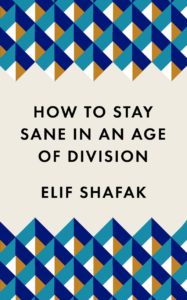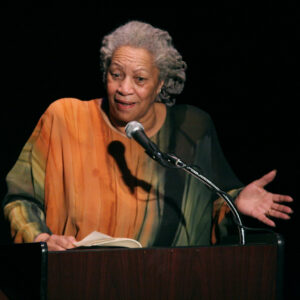
Elif Shafak on What It Means to Belong in Many Places at Once
"It worries me immensely, seeing the walls rise higher and higher."
“This city will always pursue you,” wrote the Greek poet Constantine Cavafy, even when you go to another country, another shore. The city that always pursues me is Istanbul.
I am an Istanbulite in my heart, even if I no longer can travel back. My love and care for the city is profound, and I believe it is highly visible in my novels. Wherever I go Istanbul will accompany me, that’s how I feel. We do not give up on the places we love just because we are physically detached from them.
Motherlands are castles made of glass. In order to leave them, you have to break something—a wall, a social convention, a cultural norm, a psychological barrier, a heart. What you have broken will haunt you. To be an emigré, therefore means to forever bear shards of glass in your pockets. It is easy to forget they are there, light and minuscule as they are, and go on with your life, your little ambitions and important plans, but at the slightest contact the shards will remind you of their presence. They will cut you deep.
The motherlands we have walked out on resemble the oaths we have taken as children. We might not believe them any more, we might not even think about them much, but they still tie our tongues. They are the secrets withheld, answers swallowed, hurts unspoken, old wounds opened fresh, first loves unforgotten. Adamant though we may be to abandon our motherlands, because God knows we have had enough of them, enough of their stupidities and absurdities and hostilities and cruelties, the truth is they will never abandon us. They are shadows that tag along with us to the four corners of the earth, sometimes they walk ahead of us, sometimes they fall behind, but they are never too far. That is why, even long after migrations and relocations, if you listen carefully, you can still detect traces of our motherlands in our broken accents, half smiles, uncomfortable silences.
Multiple belongings is an attitude, a way of thinking, rather than the number of stamps on your passport.
So, yes, I am an Instanbulite.
But I am also deeply attached to the Balkans. Bring me together with an author of Greek, Bulgarian, Bosnian, Albanian or Romanian background, you would be amazed to see how much we have in common. Equally, I carry many elements in my soul from the Middle East. So this time put me next to an author of Syrian, Lebanese, Jordanian, Egyptian, Israeli, Palestinian or Tunisian background. Once again, you’d be surprised to see how similar we are.
At the same time, I am a Londoner, a British citizen and I feel deeply and passionately attached to this country where I have found the freedom to write. I am European—by birth, by choice and the values that I uphold. And despite what our politicians have been telling us of late, I would like to think of myself as a citizen of the world, a citizen of this planet, a global soul.
I have multiple belongings.
“Well, that’s a luxury,” populists say. “Not everyone can travel.”
True, not everyone can travel across cultures but not everyone who does is necessarily “elite.” In the aftermath of the pandemic fewer tourists will be able to take overseas trips, fewer international students will apply, and fewer immigrant workers will be welcomed. It worries me immensely, seeing the walls rise higher and higher.
Why is it that, at school, in the family, and in society, we seldom teach our children that they have multiple belongings and can dearly love both their countries and communities while at the same time remembering they are citizens of humanity.
Multiple belongings are nurtured by cultural encounters but they are not only the preserve of people who travel. It is an attitude, a way of thinking, rather than the number of stamps on your passport. It is about thinking of yourself, and your fellow human beings, in more fluid terms than solid categories.
Maybe you were born and raised, educated and married, all within the circumference of the same town. Through your family stories, cultural affiliations, social preferences, political views, sports and arts connections, and so on, you still have multiple belongings.
A human being, every human being, is boundless and contains multitudes.
There is more overlap, there is always greater possibility of finding common ground between people of multiple belongings the between people of mutually exclusive identities. And yet, why is it that, at school, in the family, and in society, we seldom teach our children that they have multiple belongings and can dearly love both their countries and communities while at the same time remembering they are citizens of humanity.
__________________________________

This is an extract from How to Stay Sane in an Age of Division by Elif Shafak, published by Profile Books/Wellcome Collection.
Elif Shafak
Elif Shafak is an award-winning British-Turkish novelist and the most widely read female author in Turkey. She has published seventeen books, eleven of which are novels. Her work has been translated into 50 languages. Her latest novel 10 Minutes 38 Seconds in this Strange World was shortlisted for the Booker Prize and RSL Ondaatje Prize, and selected as Blackwell’s Book of the Year. Her previous novel, The Forty Rules of Love was chosen by BBC among 100 Novels that Shaped Our World. Shafak is an honorary fellow at St Anne's College, Oxford University.



















